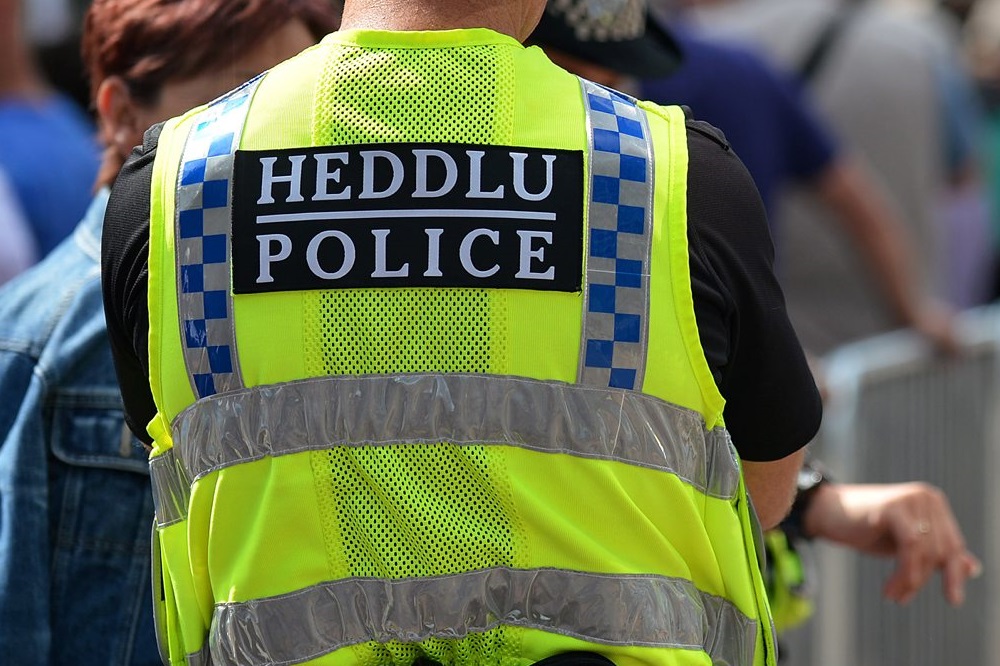Black people seven times more likely than white people to be stopped and searched in Wales

Black people are seven times more likely than white people to be stopped and searched in Wales, new data has revealed.
The gap in the stop and search rate between white and black people was wider in Wales (8 to 56) than it was in England (7 to 51) in 2020/21.
The data from Cardiff University’s Wales Governance Centre was revealed by Senedd Member Rhys ab Owen at today’s First Minister’s Questions in the Senedd.
Mark Drakeford responded that it was a “shocking figure” and called for the devolution of police powers to Wales.
In 2020/21, of every 1,000 people:
- Eight white people living in Wales were stopped and searched
- 56 black people
- 16 asian people
- 28 people who identify as being from a Mixed ethnic background.
Dr Robert Jones, who obtained the data, said they reinforced previous research from Cardiff University’s Wales Governance Centre which showed high levels of racial disproportionality in imprisonment, arrest and custodial sentences in Wales.
“These latest data add to the evidence we have already uncovered about the fact that non-white people are more likely to come into contact with the criminal justice system in Wales,” Dr Robert Jones said.
“This includes evidence that individuals from non-White backgrounds are more likely to be stopped and searched by police, sentenced to imprisonment and receive longer prison terms, than white people in Wales.
“We have previously used our research to call for a Senedd committee inquiry into racial injustice in the Welsh criminal justice system, these latest data further underline the need for such an inquiry and for the Welsh Government to give far greater attention to racial discrimination and criminal justice in Wales.”
‘Prejudice’
Speaking in the Senedd, Rhys ab Owen called for an inquiry into the figures.
“Now, we have known for decades about the prejudices faced by people of ethnic minority within the justice system globally,” he said.
“What we have not known, until recent years, is that racial prejudice within the justice system in Wales seems to be worse here in Wales than in England.
“Through the work of the Cardiff University Wales Governance Centre, we now know that black offenders receive the highest average custodial sentence length in Wales, whilst white offenders receive the lowest average custodial sentence length.
“New stop-and-search data by the governance centre show that matters in Wales are far worse than in England. For every 1,000 white persons living in Wales, eight were stopped and searched, and this compares to 56 per 1,000 people in the black community in Wales.
“Individuals from black, ethnic backgrounds in Wales were seven times over-represented within police use of restraint, six times over-represented in police use of weapons, such as tasers.
“Now, these are disgraceful figures, which should worry all of us within this Chamber. I’m pleased that Wales is called a nation of refuge, but it can’t really be called genuinely a nation of refuge if people in the black population are far more likely to be dragged into the criminal justice system than their white contemporaries.”
The First Minister, Mark Drakeford, said that it was a “shocking figure”.
“The long-term answer, Llywydd, is surely the devolution of policing and justice,” he said.
“And it is my belief, that that is not a matter of if it will happen, it is a matter of when it will happen. It should and it will happen, and that’s because the case for doing so is so clear and reinforced by exactly the information that Rhys ab Owen has highlighted this afternoon.
“Where we have been able to have a strong influence, Llywydd, then we show the difference that we can make. Our influence has probably been strongest in the field of youth justice. A decade ago, in 2011, there were over 3,000 young people brought into the youth justice system for the first time that year. Ten years later, last year, that figure was under 400.
“Again, back in 2011, 109 young people in Wales were sentenced to custody that year. Last year, it was 17, the lowest figure ever on record.
“And that’s why I feel confident that we will see the devolution of policing and justice, because we can show that, when we have the opportunity, we are able to deliver those services more efficiently and more effectively.
“Because when they are delivered locally they can be tailored, prioritised and implemented according to the values and the approach that we would wish to see for that service here in Wales.”
Support our Nation today
For the price of a cup of coffee a month you can help us create an independent, not-for-profit, national news service for the people of Wales, by the people of Wales.





